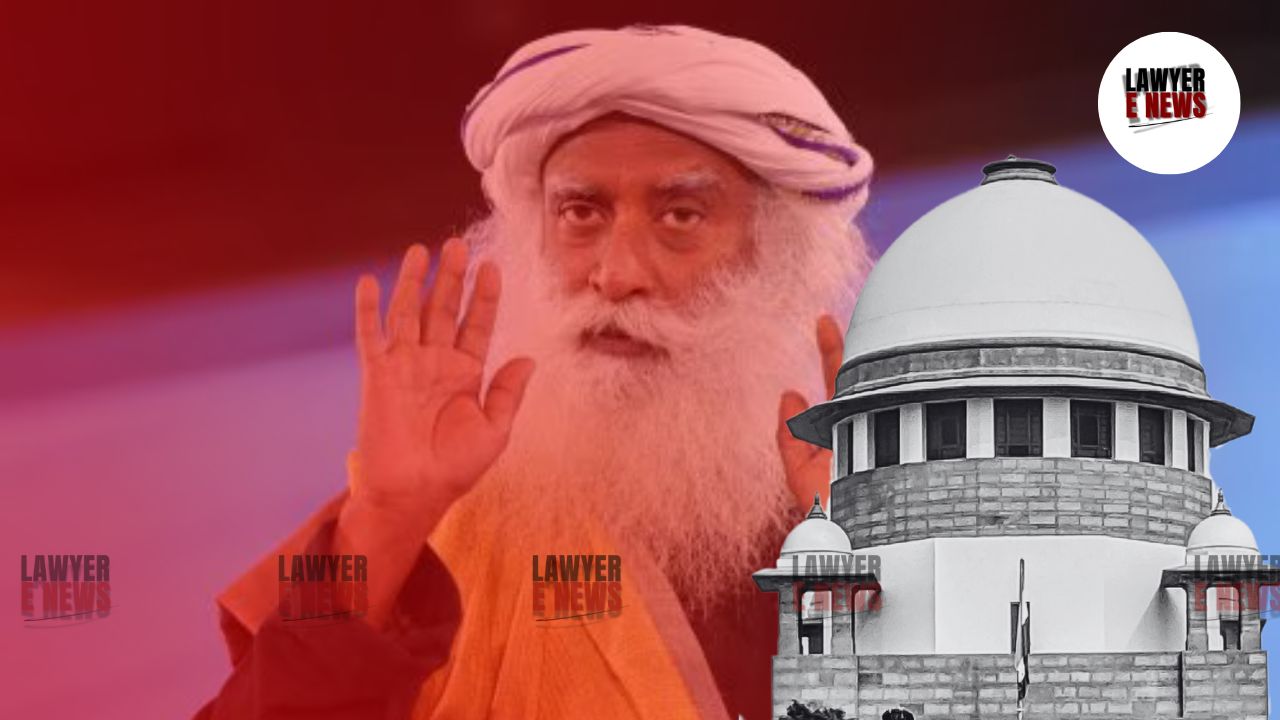-
by Admin
15 February 2026 5:35 AM



Jurisdiction Under Article 226 Does Not Extend to Voluntary Residents, Supreme Court Disposes of Habeas Corpus Case. Supreme Court of India, in Isha Foundation vs. S. Kamaraj & Ors. (SLP (Crl.) No. 13992/2024), disposed of a habeas corpus petition alleging the unlawful detention of two individuals, Geeta Kamaraj and Lata Kamaraj, within the premises of the Isha Foundation. The Court ruled that since both individuals voluntarily resided at the Foundation, the habeas corpus petition was irrelevant, and no further inquiry was necessary. The case marked a significant clarification on the scope of habeas corpus petitions under Article 226 of the Indian Constitution, especially where there is no unlawful detention.
The case arose from a habeas corpus petition filed by the first respondent, S. Kamaraj, the father of Geeta and Lata Kamaraj. He alleged that his daughters were held captive at the Isha Foundation's ashram in Coimbatore. The Madras High Court, in its order dated September 30, 2024, directed the Coimbatore Police to conduct an inquiry into the allegations. However, during the High Court proceedings, both individuals stated that they were residing at the ashram voluntarily, free from any coercion.
Despite their statements, the High Court ordered a further inquiry, which led to the involvement of multiple officials, including members of the District Child Welfare Committee, health professionals, and the police. Dissatisfied with this continued inquiry, the Isha Foundation approached the Supreme Court under Article 136, seeking relief from the High Court’s order.
The main legal issues revolved around the scope of a habeas corpus petition under Article 226 and whether further inquiry was warranted when the alleged detainees had already affirmed their voluntary stay.
Habeas Corpus and Voluntary Stay: The Supreme Court reiterated the limited scope of habeas corpus under Article 226, stating that it only applies to cases involving unlawful detention. The Court noted that both Geeta and Lata Kamaraj were adults who had voluntarily chosen to stay at the Isha Foundation. They were free to leave the premises, had regular contact with their parents, and had even participated in external activities, such as a marathon in Hyderabad. Since there was no evidence of coercion or unlawful restraint, the habeas corpus petition had no basis.
"Both individuals stated that they are residing at the Ashram voluntarily and without any coercion; they are free to travel outside the Ashram which they have done from time to time." (Para 6)
Article 136 and the High Court's Overreach: The Supreme Court also addressed the High Court's broad order directing a police inquiry despite the voluntary statements made by the individuals concerned. The Court held that the High Court had overreached by continuing the inquiry when the purpose of the habeas corpus petition had already been fulfilled.
"It would be unnecessary for this Court to expand the ambit of these proceedings which arose from the habeas corpus petition filed before the High Court of Judicature at Madras." (Para 9)
Interaction with the Alleged Detainees: The Supreme Court personally interacted with Geeta and Lata Kamaraj via video conferencing. Both affirmed that they had willingly joined the ashram when they were 24 and 27 years old, respectively, and were now 39 and 42 years old. They confirmed that they were not being held against their will, had frequent contact with their parents, and could leave the ashram as they pleased.
"They have expressed their clear inclination to continue at Isha Foundation at Coimbatore. In this view, the purpose of the Habeas Corpus Petition is duly fulfilled." (Para 7)
Status Report from Coimbatore Police: A detailed status report submitted by the Superintendent of Police of Coimbatore confirmed that the two women were in good health and resided at the ashram voluntarily. The police investigation found no evidence of coercion or maltreatment.
"Both individuals stated that they are living happily in Isha Yoga Centre in the path of monkhood and they requested their parents not to tell any lies about them and the institution in public." (Para 25)
Regulatory Compliance by Isha Foundation: Although the habeas corpus petition was dismissed, the Court clarified that Isha Foundation must continue to comply with any applicable regulatory obligations. The Foundation's counsel assured the Court that they would meet all legal requirements.
"The closure of these proceedings, it is clarified, will not affect any other regulatory compliances which are required to be achieved by Isha Foundation." (Para 10)
The Supreme Court concluded that the habeas corpus petition was without merit, as the individuals in question were residing voluntarily at the Isha Foundation. The Court dismissed both the habeas corpus petition and the Special Leave Petition, while noting that the regulatory compliance of the Isha Foundation must continue as per law.
Date of Decision: October 18, 2024
Isha Foundation vs. S. Kamaraj & Ors.,
